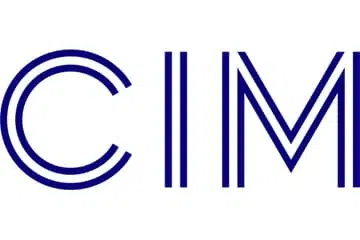Recently, Paul and I took park in the Chartered Institute of Marketing’s (CIM) Future Focus Hackathon in the beautiful city of Cambridge. It was a chilly night, but the region’s brightest had come together to discuss the major issues facing the marketing industry, and those of us working within it, over the next 10 years.
Needless to say, it’s a hot topic and delegates had come from across the region to share and discuss there views. The CIM kicked us off with some of the key themes they’d identified:
- A shift in power from the brand to the customer
- A new model of engagement
- An increase in customer expectation
- An era of mistrust between customers and brands
- Incomparable growth in the amount on data
Considering these themes, the CIM is looking to gather the views of its members across the country to determine how the governing body can support its people on the ground over the next decade.
Emerging talent will suffocate unless it’s nurtured by established marketers
Owner of Keynote PR, and CIM Chairman of Cambridge, Terry Nicklin was the first to speak and proposed an interesting question to the room. He asked whether or not the same sort of people go into marketing now, as they did 20 years ago. With digital now firmly part of the marketing mix, there was great discussion around whether this was an environment for the ‘young’, and how new and established marketers could come together for the benefit of both generations. This was a really important point for me, and I was interested in what my associates had to say on the matter. I believe in working together, as youth is no guarantee of innovation and experience is no guarantee of efficiency. Each generation needs to collaborate to figure the next 10 years out. I was encouraged that some of the most established marketers in the region felt the same way. It will be through the sharing of best practice processes, applying these to new technologies and flexible ways of working, that will produce results as we move forward.
‘We didn’t create social…’
As with any meeting of marketing minds that’s discussing the future, there was a huge emphasis being placed on social media. Generally, the attendees were suspicious of this channel and didn’t believe it could measurably impact a company’s turnover. However, there was agreement that it’s effectiveness depended largely on a business’s target audience and its offering. Interestingly, Terry commented that this was one channel, unlike the others, that wasn’t created by marketers and as such, it may be why it makes many business owners slightly nervous.
Change is the only constant now
Next up to speak was Andrew Chalk, from Outside In Marketing. He started us off by considering the pace at which the industry is changing, and how we’ve changed more in the last two years, than we have in the last decade. No one believes this pace of change will let up now, so organisations need to be prepared to embrace a tolerance for shifting horizons. The rate at which the industry will continue to change will mean that ‘marketing best practice’ will be more important now than ever before as we all establish ongoing control in our marketing strategies and tactical campaigns in a change environment.
Less talk about channels, and more on messages
Paul and I believed that much of the evening’s discussion was around the suitability of various marketing channels and the issues surrounding how marketers can be taken seriously within the boardroom. We believe in putting more emphasis on customer insight research that will enable organisations to develop quality messages that are going to produce the desired result for brands. The emphasis feels like it’s all about channels, when it should be about the content being disseminated through them if brands are to see the desired financial results. The future for the CIM will continue to be focus on being ambassadors of the strategic area of marketing.
What’s next?
Following the great discussion and debate at the conference in Cambridge, the CIM is taking its Hackathon concept on the road, holding Future Focus sessions across the country. By taking the temperature of the marketing profession, the ideas gathered will help form the key themes of the central Hackathon that takes place next year.
